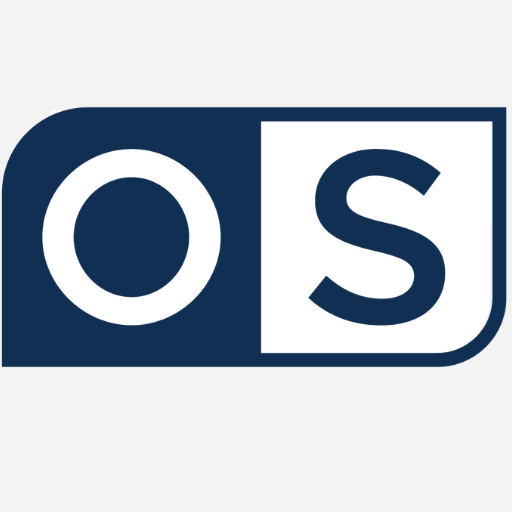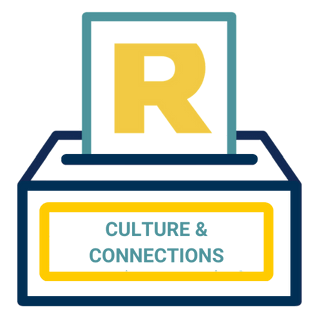Shared Expectations
At Raise we believe that shared expectations act as a behavioral compass, guiding employees in how they should strive to interact, communicate, and conduct themselves in the workplace. These shared commitments are practical “I” statements, designed not as strict rule but as goals or ideals that everyone strives towards for continuous improvement and harmony in the company’s daily operations.
Self-Management and Ownership Thinking:
- I take initiative instead of waiting for direction.
- I drive my own growth, taking advantage of learning resources.
- I prioritize actions that benefit the organization over personal gain.
- I take controlled risks, even when the outcome is uncertain.
- I proactively look for ways to improve the business.
- I don’t wait for permission. I work out loud.
- I identify problems and opportunities in my work environment and seek advice on finding solutions.
- I collaborate with others to find the best solution.
- I take on work outside of my responsibilities/comfort zone when needed to help the team thrive.
- I do what I say I’m going to do.
- I own my mistakes, discuss them openly, and learn from them.
- If I’m the decision-maker, I’m able to act even without consensus or permission.
- I make decisions and I am willing to take accountability for the outcomes, good or bad.
- In releasing my positional authority, I acknowledge that my role is to support and empower others rather than control them.
- Releasing positional authority does not exclude me from participating in decision-making or taking ownership for significant problems or opportunities.
- I make financial decisions in the best interest of the Company.
- I recognize that my influence comes from the quality of my ideas and contributions, not my title.
- When my emotions want to lead, I own the limits of my perspective, and aim for what is in the best interest of the company.
Working Out Loud (Transparency):
- I consistently share updates on my work, progress, and achievements with my team and relevant stakeholders.
- I openly speak about decisions I’ve made.
- I provide context for my decisions and actions, helping others understand the reasoning behind them.
- I document my work processes, decisions, and rationale so others can understand my approach and learn from my experiences.
- I communicate potential challenges or roadblocks that I anticipate, seeking input and solutions from my team.
- I make my work visible to colleagues in a way that allows them to easily access and contribute to shared projects or knowledge.
- I actively use collaboration tools and platforms to facilitate open information sharing and real-time updates.
- I share my ideas openly and invite others to do the same.
- I share information so that my whole team can do their jobs better; I don’t hoard information.
- I actively work in my team’s workspaces, sharing and storing information where it’s accessible.
Psychological Safety:
- I share my perspective, even when It’s uncomfortable.
- I am not afraid to discuss obstacles or challenges I encounter.
- I am vulnerable and invite others to help or provide solutions.
- I admit my mistakes and share the lessons I’ve learned.
- I encourage open and honest communication, even when it involves dissenting opinions.
- I create an environment where colleagues feel comfortable approaching me for help, clarification, or to contribute to their work.
- I actively listen to my colleagues and show empathy towards their concerns and ideas.
- I refrain from making personal attacks or negative judgments in discussions.
- I offer constructive feedback in a supportive and nonjudgmental manner.
- I demonstrate respect for all team members, regardless of their roles or backgrounds.
- I address concerns in the moment and do not leverage past conversations or mistakes against colleagues long after the moment has past.
- I am inclusive, seeking different perspectives and experiences.
- I aim for constructive dialogues and seek help when required to make that possible.
- I promote a culture where mistakes are seen as opportunities for growth rather than reasons for blame.
Own your own perspective (Voice) means:
I recognize and understand my emotions as they arise.
I understand my strengths and the areas where I can improve without judgment or harsh self-criticism.
I am aware of my bias.
I am aware of how my words and actions impact others on the team.
I engage in self-reflection to enhance my self-awareness and personal growth.
- I seek to align my actions and perspectives with the organization’s values and purpose.
- I value and respect the diversity of perspectives and experiences within the team.
- I engage in open and honest conversations to address any tensions or differences in viewpoints with my colleagues.
- I encourage people who express different viewpoints.
- I’m willing to disagree but not shut down an opinion for being different.
Stewardship, Purpose, and Profit means:
- I evaluate my responsibilities to ensure that they align with the values and business needs of our organization.
- I sense and respond to urgency and priority based on organizational needs.
- I evaluate my responsibilities to ensure that they align with the values of our organization.
- I understand and embrace my role’s purpose and how it contributes to the organization’s mission.
- I understand my role purpose and the KPIs I must fulfill.
- I know how my work increases the profitability of the organization.
- I strive to balance the pursuit of profit with social and environmental responsibility, recognizing that these aspects are interconnected.
Healthy Relationships, Empathy, and Expectations means:
- I actively ask for feedback.
- I give feedback as close to the instance as I’m able.
- I take all feedback seriously and explore it earnestly.
- I seek a mentor or facilitator to support me with giving and receiving feedback when it feels uncomfortable or challenging rather than avoid it.
- I direct my feedback to the person involved, instead of building a “side” or team.
- I have direct, honest conversations with coworkers rather than talking about them to others or relying on back-channel conversations.
- I care personally and challenge directly.
- I seek to understand.
- I exemplify receiving feedback gracefully and productively.
- I am honest about my feelings.
- I speak up with compassion and understanding.
- I challenge the stories in my head by inquiring directly to confirm before adopting them as “truths”
- I embrace discomfort to foster learning.
- I own the limitations of my perspective and choose to be open to the broader picture.
- I explore different viewpoints.
Innovation and Consistency:
- I continuously strive for improvement and growth in my work and processes.
- I focus on incremental progress and refining our practices over time.
- I am committed to learning from both successes and failures to do better in the future.
- I encourage and support creative thinking and problem-solving within the organization.
- I am open to exploring new ideas and approaches to address challenges within my role.
- I recognize that innovation can come from anyone in the organization, not just top-down.
- I actively seek opportunities to adapt and evolve to stay competitive and relevant.
- I keep an open mind on new ideas, even if I’m not fully in agreement with them.
- I proactively seek new learning and growth opportunities for myself
- I embrace change as a natural part of our ongoing evolution.
- I champion a culture that values experimentation and doesn’t fear failure.
- I adhere to established processes and standards to maintain quality and reliability.
- I work to strike a balance between consistency and adaptability to best serve the organization’s goals.
- I am mindful of the need for stability in certain aspects of the organization.
- I strive to deliver a consistent experience to customers and stakeholders.
- I communicate and ensure clarity on organizational expectations and guidelines.

